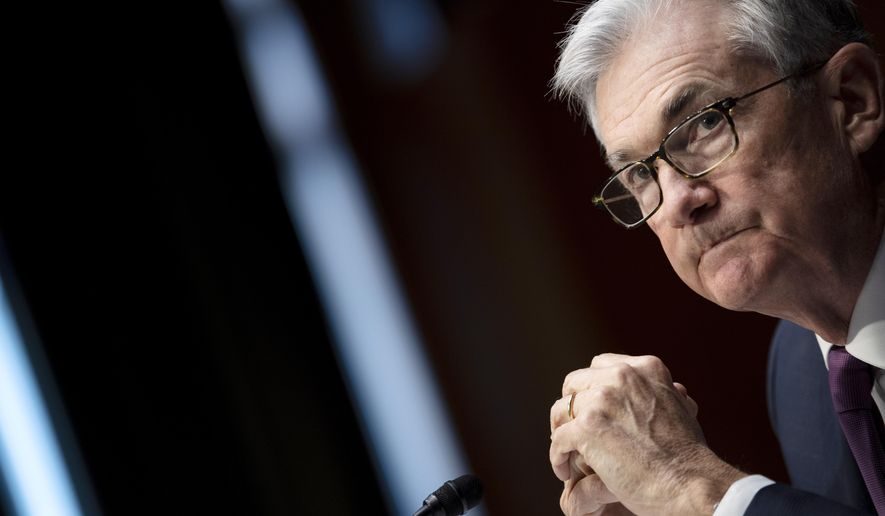The Federal Reserve said Wednesday it will likely begin to raise interest rates, probably in March, as the central bank tries to rein in record-high inflation.
The Fed didn’t set a timetable but said a quarter-percentage-point increase of its benchmark short-term borrowing rate is likely coming soon.
With high inflation squeezing consumers and businesses and unemployment falling steadily, the central bank also said it would phase out its monthly bond purchases in March.
Fed Chairman Jerome H. Powell said the central bank’s Open Market Committee “is of a mind to raise the federal funds rate at the March meeting,” given inflation and the continued impact of the omicron variant of COVID-19.
“Inflation has persisted longer than we thought,” Mr. Powell said. He did say the central bank still expects inflation to come down “over the course of the year.”
He also said supply-chain problems and product shortages in the U.S. are still unresolved, contributing significantly to inflation.
High inflation also is contributing to President Biden’s low job-approval ratings. The president hosted corporate executives at the White House on Wednesday to revive support for portions of his failed $1.75 trillion “Build Back Better” bill, which Republicans say would only worsen inflation.
Mr. Biden highlighted job growth in his first year, but acknowledged to the CEOs that inflation is holding back the economy.
“We’ve got to get prices in check for working people,” Mr. Biden told the heads of General Motors Co., Ford Motor Co., Microsoft Corp. and other companies.
The Federal Reserve’s actions are sure to make borrowing — including mortgages, credit cards, auto loans and corporate credit — costlier over time. Those higher borrowing costs, in turn, could slow consumer spending and hiring. The gravest risk is that the Fed’s abandonment of low rates could trigger another recession.
“The best thing we can do to support continued labor market gains is to promote a long expansion, and that will require price stability,” Mr. Powell said. “I think there’s quite a bit of room to raise interest rates without threatening the labor market. This is by so many measures a historically tight labor market.”
It would be the first increase since December 2018 in the rate, which has been near zero since the start of the COVID-19 pandemic.
SEE ALSO: IMF downgrades growth forecast for U.S., global economy amid high inflation, virus spread
“With inflation well above 2% and a strong labor market, the Committee expects it will soon be appropriate to raise the target range for the federal funds rate,” the Fed’s statement said. The committee doesn’t meet in February.
The announcement was not a surprise, but the expected action has caused turmoil in markets since the start of the year. The Dow Jones Industrial Average, which had been trading higher before the Fed’s meeting ended, fell about 800 points after the announcement and closed down 129 points at 34,168.
The committee also said the Fed’s monthly bond-buying will continue at just $30 billion in February, suggesting it could end in March as the central bank tightens monetary policy.
Mr. Powell said no decisions had been made on the timing of shrinking the Fed’s balance sheet, only that such moves would come after the central bank raises interest rates.
Some observers said the Fed should have announced moves this week after inflation hit a 40-year high of 7% in December.
“They have no backbone,” former Fed governor Robert Heller said on CNBC. “The Fed needs more action and less words.”
• This article is based in part on wire-service reports.
• Dave Boyer can be reached at dboyer@washingtontimes.com.




Please read our comment policy before commenting.